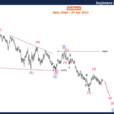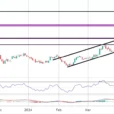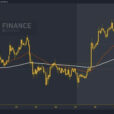
Steben & Co., a Gaithersburg, Maryland-headquartered fund of fund manager, has issued a white paper on the various unfavorable myths that it contends surround the hedge fund market. It says that four different myths are discouraging investments, and indeed that they are promulgated precisely for that purpose. The myths: that the smart money is getting out of hedge funds; that they underperform the equity markets long term; that they fail to provide diversification; and (the fourth alleged myth is a double barreled one) the fees are too high while the liquidity is too low.
The most intriguing of their myth-busting efforts is the second, on the comparison with equity markets. So we’ll save that for last in this precis.
Smart Money and Diversification
The myth says that the proverbial rats are leaving the ship, so it must be sinking or at best in the vicinity of some jagged rocks. This idea has been prevalent at least since 2014, when the California Public Employees’ Retirement System exited its hedge fund positions.
Steben replies, with respect to CalPERS specifically, that “the decision to redeem from hedge funds did not appear to be primarily motivated by a view of the future performance prospects of the investment class.”There were three other considerations at work: the smallness of the original allocation (hedge funds were only 1% of CalPERS’ portfolio); the politically unpalatable appearance of paying high fees to HF managers; and the real estate background of the newly appointed CIO.It was a decision, then, about optics and comfort levels, not about the “smartness” of CalPERS’ money.
In general, the paper observes, there is no jumping ship. For example, “for endowments in aggregate, hedge fund allocations as a percentage of their total portfolio have been remarkably stable at close to 20% in recent years.”
Another myth: hedge funds don’t provide diversification.Steben acknowledges a modicum of truth to this one, “many hedge funds may be less effective as diversifiers today than in the past.” But that issue is specific to equity oriented hedge funds and the event driven strategies. Many other strategies such as relative value, global macro, etc., and the funds that pursue them, still have low correlations to the S&P and thus can continue to play an important diversification role in a portfolio.













Leave A Comment